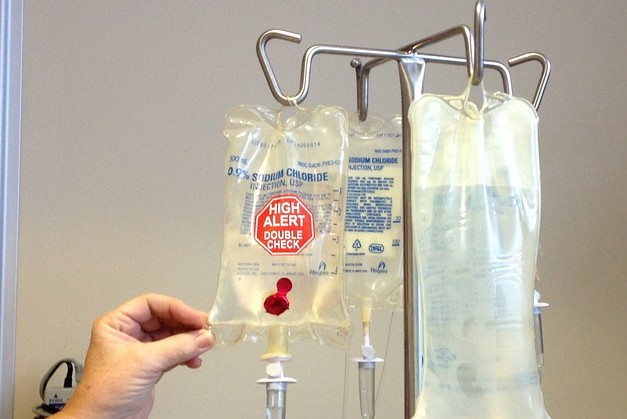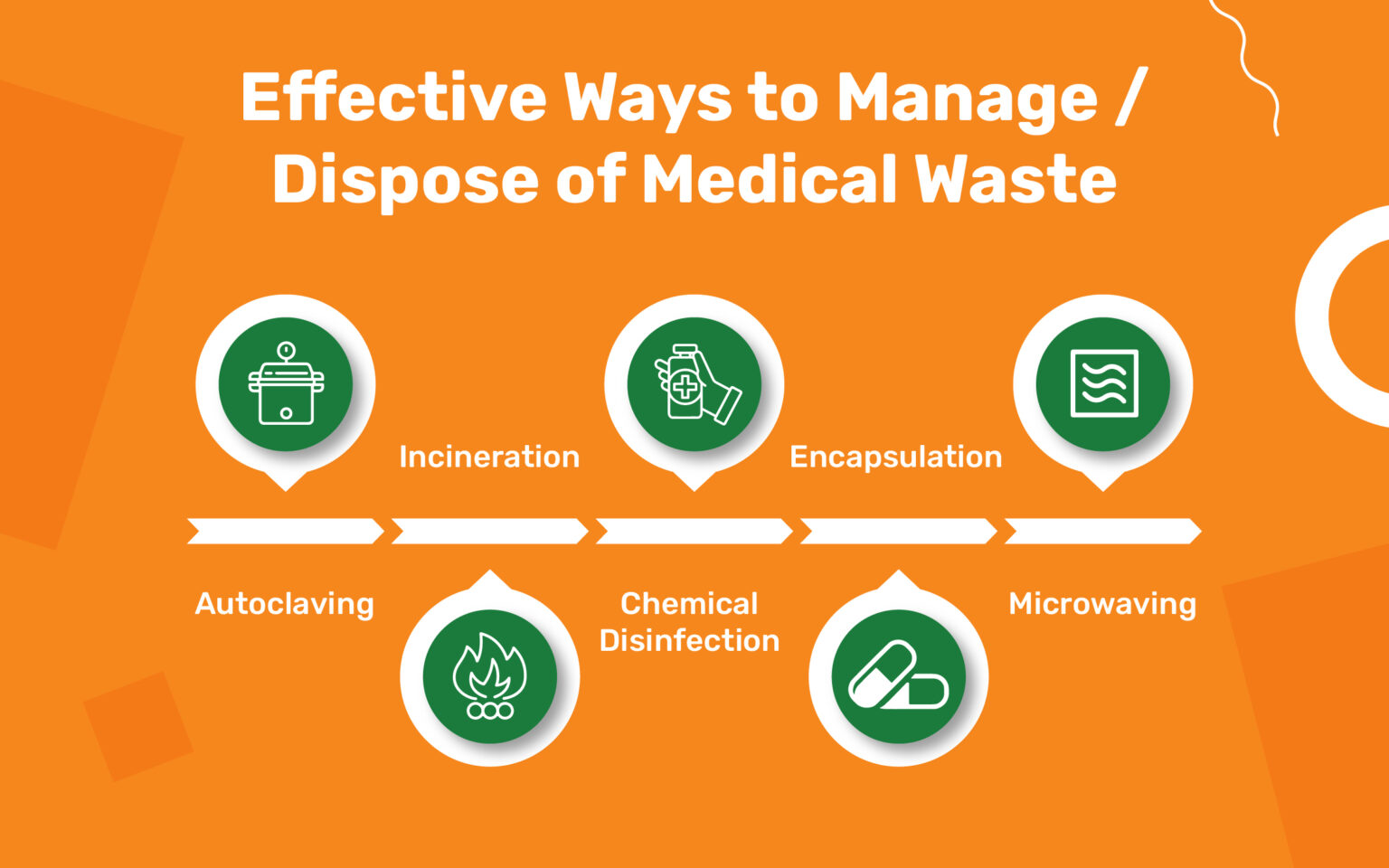Shielding Health And Wellness: Specialist Medical Waste Removal Services for a Tidy Environment
Shielding Health And Wellness: Specialist Medical Waste Removal Services for a Tidy Environment
Blog Article
Remain Ahead of Rules: Expert Advice on Medical Waste Disposal
In a world where the medical care sector is constantly developing, it is imperative for medical facilities to stay ahead of guidelines when it involves the correct disposal of clinical waste. With stringent guidelines and frequent regulatory changes, it can be challenging to navigate the complexities of this process. Nevertheless, with skilled suggestions, centers can make certain conformity and mitigate risks connected with incorrect waste disposal. From understanding the different categories of clinical waste to applying the ideal collection and segregation approaches, this discussion will give workable ideas and important insights to aid centers stay ahead of laws in the ever-changing landscape of medical waste disposal.
Comprehending Medical Waste Categories
Recognizing medical waste categories is necessary for appropriate disposal and monitoring in healthcare centers. Medical waste describes any kind of waste generated by health care activities that may pose a risk to public wellness or the environment. It is critical to categorize clinical waste properly to ensure its secure handling, disposal, treatment, and transportation.
There are a number of categories of clinical waste that healthcare facilities need to be accustomed to. One of the most usual categories include contagious waste, pathological waste, sharps waste, pharmaceutical waste, and chemical waste. Each group has details guidelines and policies for its appropriate administration and disposal.
Pathological waste refers to human cells, body organs, or body parts that require special handling and disposal. Drug waste makes up ended, unused, or contaminated medicines that require cautious handling and disposal.
Staying Up-To-Date With Regulatory Changes
Remaining existing with regulative modifications is crucial for healthcare centers to ensure compliance and correct administration of medical waste disposal. medical waste removal services. With guidelines frequently progressing, it is necessary for health care facilities to remain current to prevent penalties, penalties, and potential damage to the environment and public health and wellness
To remain ahead of regulative adjustments, health care facilities need to establish a system for surveillance and tracking updates. This can be done by subscribing to governing newsletters, participating in seminars and workshops, and actively taking part in market organizations. Additionally, centers should mark a staff participant or team in charge of staying notified and disseminating info to pertinent stakeholders.
Routine interaction with regulative agencies is likewise important. Health care centers ought to develop relationships with regional, state, and government companies to guarantee they are conscious of any modifications in regulations that might affect their waste monitoring techniques. This can be done through routine conferences, participation in public remark durations, and proactive engagement with regulative firms.
In addition, health care centers must consider partnering with waste administration companies that concentrate on medical waste disposal (medical waste disposal services with WasteX). These firms are frequently skilled in the most up to date regulations and can offer support and assistance to make certain conformity
Implementing Correct Collection and Partition Methods
To properly handle medical garbage disposal, health care facilities need to develop appropriate collection and segregation techniques in accordance with regulatory guidelines. Implementing these methods ensures the secure handling and disposal of potentially unsafe materials, safeguards the atmosphere, and reduces the risk of infections and injuries to healthcare employees and the public.
Correct collection and partition techniques involve making use of marked containers and classifying systems. Health care facilities should give plainly identified containers for different kinds of clinical waste, such as sharps, infectious waste, pharmaceutical waste, and non-hazardous waste. These containers should be color-coded and plainly marked to avoid complication and promote easy recognition.
Furthermore, healthcare centers ought to train their team on the right procedures for collecting and setting apart medical waste. This includes enlightening them on the various kinds of waste, the appropriate containers to make use of, and the significance of following regulations and standards. Routine training sessions and refresher course training courses must be conducted to guarantee that employee stay up-to-date on ideal methods.
Additionally, healthcare centers must establish a system for normal collection and disposal of clinical waste. This may involve partnering with accredited waste administration companies that concentrate on medical garbage disposal. These companies will certainly make certain that the gathered waste is carried and dealt with in conformity with governing needs.
Picking the Right Disposal Methods

Incineration is just one of one of the most common my explanation and effective methods for throwing away particular types of medical waste, such as pathological waste and sharps. It involves the controlled combustion of waste at high temperatures, decreasing it to ash. Nevertheless, incineration can release unsafe toxins right into the air and add to air contamination.

Various other disposal methods include chemical treatment, microwave treatment, and landfilling. Chemical therapy involves the use of chemicals to sanitize and neutralize the waste. Microwave treatment utilizes microwave energy to warm and decontaminate the waste. Landfilling includes hiding the waste in an assigned land fill location (medical waste disposal services with WasteX). Nevertheless, landfilling must be the last option due to the potential risk of contamination to soil and groundwater.
Guaranteeing Compliance Through Paperwork and Training
After very carefully taking into consideration the appropriate disposal methods for medical waste, healthcare facilities need to make sure conformity with guidelines and decrease ecological effect by applying reliable documentation and training procedures. This step is vital in maintaining a lasting and secure setting for both healthcare workers and the general public.

Health care employees who deal with clinical waste must obtain ideal training on waste partition, taking care of, and disposal treatments. By providing extensive training, healthcare facilities can empower their personnel to make educated choices and lessen the danger of incorrect waste disposal.
Verdict
In final thought, remaining ahead of policies in medical waste disposal is essential for healthcare facilities. medical waste removal. Understanding the various groups of clinical waste, staying updated with regulatory adjustments, carrying out appropriate collection and partition approaches, picking the ideal disposal approaches, and making certain conformity via documents and Look At This training are all important actions. By following these standards, health care companies can successfully dispose and handle of clinical waste in a responsible and risk-free way
From comprehending the different classifications of medical waste to applying the best collection and partition methods, this discussion will certainly give workable ideas and Recommended Site beneficial understandings to help facilities stay ahead of laws in the ever-changing landscape of medical waste disposal. - medical waste disposal services with WasteX
The most common categories include contagious waste, pathological waste, sharps waste, pharmaceutical waste, and chemical waste. Health care centers need to give plainly labeled containers for various kinds of clinical waste, such as sharps, transmittable waste, pharmaceutical waste, and non-hazardous waste. Medical care centers need to develop a comprehensive system to record and track all aspects of medical waste disposal, consisting of kinds of waste created, amounts, and disposal techniques utilized. Health care workers who handle clinical waste needs to obtain ideal training on waste partition, managing, and disposal treatments.
Report this page